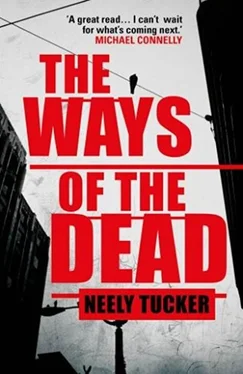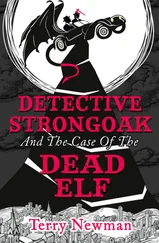“No, no,” she said, stepping to the side to let him enter. “Just wanted to make sure I didn’t run out of time, talking to you, and have to run to work without my face on.”
The interior of her house was compact and neatly presented. A few prints on the wall, grown-up furniture, runners in the hallways, polished wood floors, all speaking of maturity and sensible choices. The couch in the front parlor, the coffee table, the sitting chairs-they could have been ordered from Ethan Allen. She was the IT director at a small law firm, she told him, and the house looked like it. He couldn’t help but think, Serious big sis, wild-ass little sis .
There were four large plastic boxes sitting by the coffee table, and she sat on the couch by them, gesturing to a parlor chair for him.
“I packed up all this in such a hurry,” she said. “By that time I-this was when she was missing for three months-I knew she was dead. I was just throwing things in boxes. It’s just crazy.”
As she was talking, she was removing the tops from the containers. The contents looked, to Sully, incredibly well-organized. Maybe this was the difference between reporters and IT people.
He took a deep breath, still standing. She was rushing, she wasn’t thinking, she appeared to have anger management issues. Might as well deal with that first.
“Look,” he said. “I want us to be square. I want to thank you for having me out here today. But I want to make sure you’re okay with going forward.”
“You’re asking if I’m going to spit on you again?”
“More or less.”
She touched the palm of her hand to the tip of her nose and looked down and back at him. “No. I mean, yes. I’m sure I want to go ahead. First impressions, though, right? I don’t blame you. I’m not psychotic, Mr. Carter, and neither was my sister. Noel and I were different, but we were family, and we were close. And I don’t mean to jump into this right now, but I’m still not absolutely positive the ‘D’ in her datebook was David Reese. I mean, we talked, she told me she was taking classes at Big Apple, and she did not ever say anything about him. It could be ‘D’ for ‘dance class.’”
“If it’s him, it’ll be clear soon enough. And it’s Sully. Just call me Sully. You mentioned Noel’s files last night. That’s what’s in front of me?”
“I mentioned to you how disciplined Noel was, particularly about finances? I used to tease her about being the world’s only accountant in fishnets and heels. So this is all of her datebooks, her files, her paperwork that was in filing cabinets. She was bad to keep receipts stuck in jars and coffee cans at first, apparently, and then she put them into some sort of filing system.”
She was pulling out yearly planners, thin black spiral things that went back three or four years. There were notebooks and file folders with tabs denoting ACURA and RENT and HOWARD U and PEPCO and BANKING and TAXES and VERIZON and HALO and SATIN AND LACE and dozens of others.
It was the dead woman’s entire life, spelled out in minutiae. He finally sat down and asked whether the police had ever looked at all of this. Lorena said no.
“Not even after they discovered her body?”
She did not look up from the files. “Mr. Carter-Sully-other than a detective calling to notify me of the recovery of Noel’s body, and of the autopsy nonresults? I have not heard from the police at all.”
“What’s ‘Satin and Lace’?”
“The lingerie shop where she worked. It’s at Union Station, the top level.”
“Right, right,” he said. “I had forgotten.”
Sully pulled out the Halo folder. It had copies of her pay stubs and a work contract and an employee handbook. She had signed on in the fall of 1997, about six months before she went missing. He sat down and started to pull out the brightly colored folders and flip through them, then caught himself.
“When do you have to leave? For work?”
“I took the morning off.”
“Good,” he said.
The material was a sprawling mass of information, but it was gold only if he could find the vein of her disappearance and follow it through the mountain of details that Noel had kept and codified. As he sorted through the boxes, as he pulled out folders and datebooks, he recognized that Noel’s mind saw the world around her and reduced it to slots and cubicles and placed things in a taxonomical order. He blinked, going through the Howard U folder. It was stuffed with class schedules and a map of the campus and student loan documentation.
What did anyone need to know about a young girl who was dead? What was useful and what was prurient? Well. The last time anyone saw her, she was pulling out of the Halo parking lot at two in the morning in April 1998. Then, in October 1999, her decomposed corpse turned up in a basement of an abandoned house a dozen houses down from the upstairs apartment in the house she was renting.
That was the puzzle. In front of him were more pieces than anyone had ever seen. He felt the drumbeat of a tension headache begin to thump just behind his eyes.
“Sure you want to help?”
“Of course.”
“Then we’re going to build a chronology,” he said. “Let’s start it on the first of April. You’ve got a laptop? What we want to do is create a master file on that hard drive, and then we’ll copy it onto a floppy. That way we’ll both have the information. Everything, no matter the source, gets entered by date.”
He picked up Noel’s checkbook and her datebook, opened them to the last month of her life, and glanced at the first few entries on both.
“So April 1, she pays her rent, right? The girl’s a machine. April 2, her datebook says she’s got a meeting at two with her marketing professor. Like that. All these sources-canceled checks, datebook entries, receipts, class schedules-go into that master file, the chronology. That will create a timeline of the last three weeks of her life.”
Lorena reached into the second plastic container, pulling out an answering machine. “The police listened to the messages on this, but the only caller on it was me. I don’t think that’s going to help.”
She then walked into the kitchen and came back. “But they didn’t see this, because I didn’t come across it until this morning when I was going through her things to show you. It was in the front pouch of a Howard sweatshirt, one of those things with a hood. I had her clothes in boxes. I was going through them this morning, pulled out the sweatshirt, and it fell out. I didn’t know to look for it when she went missing, because I didn’t know where it was. I thought it was with her.”
She held up a cellphone.
“Jesus Christ,” Sully said. “How did she afford a cell? The job pays for mine.”
“She said all the kids at college had them. The hip ones, anyway. Fad 101.”
“Does it work?”
“The service is dead, but the unit isn’t. It should still have her numbers and contacts.”
He held up a hand for a moment, like a traffic cop, and then pulled out the appointment books, starting with the book for 1998. He couldn’t believe Jensen, the detective, had not followed up on this after Noel’s body had been found. He guessed they were too busy with the Reese case, but it was shoddy any way you looked at it.
He flipped the book to April.
The first few days looked like all the rest. On April 24, the last day she went to work, there was her marketing class at Howard in the morning. There was nothing else during that day, with “Halo 10-2” written in ink for that night.
On the morning of the twenty-fifth, at ten fifteen, there was written in her elegant, spidery hand, a single, one-letter notation: “D.” That night was another notation for her shift at Halo.
Читать дальше












